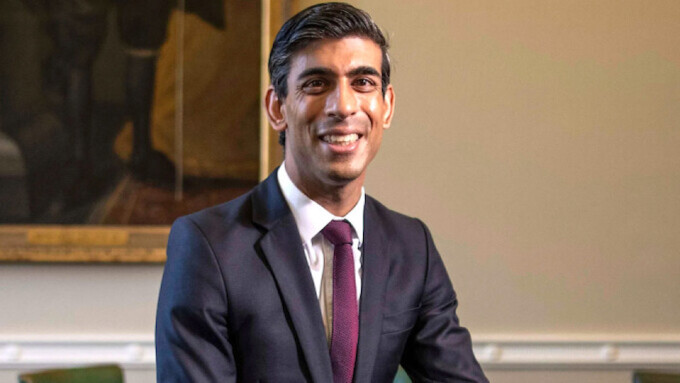LONDON — Members of the ruling Conservative Party in the U.K. are challenging Prime Minister Rishi Sunak by drafting new amendments meant to strengthen the controversial Online Safety Bill by increasing liability for platforms hosting adult content.
The news — framed this week by Bloomberg.com as “a new rebellion over online porn age verification” — has heightened the perception that the Tory PM, who succeeded the disgraced Boris Johnson and Liz Truss, is not a strong party leader.
Bloomberg also reported that earlier this month, anti-porn Tory MPs threatened a rebellion that “prompted Sunak to cave in to demands for Big Tech directors to face jail if they fail to remove harmful content.”
The Online Safety Bill has been universally criticized by free speech and digital rights advocates for its arbitrary and expansive definition of what constitutes “harmful content.” More moderate members of the Conservative Party have also criticized the bill for its potential to erode freedom of expression and privacy.
Repeated U-Turns Among Tories
As XBIZ reported, the Online Safety Bill has been stuck in conceptual chaos since its very beginnings, with various unclear goals such as “protecting children,” “outlawing hate speech,” “cleaning up the internet” and other fuzzy notions popularized through various media panics concerning online content.
The bill was originally drafted in May 2021, but was repeatedly delayed awaiting modifications prompted by the serious concerns of free speech advocates, lobbyists for platforms, and politicians across the spectrum. It was reintroduced in late November 2022, but that version met the ire of the anti-porn MPs, who have staged the “rebellions” mentioned by Bloomberg.
The November version, the New Statesman’s Sarah Dawood explained at the time, would have seen a subtler interpretation of the “legal but harmful” aspect of the bill, which before then “would have put a duty on Big Tech companies to stop the proliferation of dangerous content that is not illegal, such as misogyny, some online bullying and content promoting eating disorders.”
The “legal but harmful” formulation — essentially a vague carve-out of free speech — originates in a rhyming expression taught in U.S. law schools: “lawful but awful,” an imprecise, catchall label that encompasses threats and violence but also most visual expressions of sexuality, including all pornography.
The amendments being drafted this week by the anti-porn MPs, according to Bloomberg.com, will require that all porn websites implement age verification systems within six months of the bill becoming law. The new amendments seek to go back to the spirit of the pre-November version and are likely to be debated in a month.
“What we need is an emphatic timetable and clear cut commitment to hard-gated mandatory age verification,” Conservative peer James Bethell told Bloomberg. “The current provisions are a kumbaya aspiration that leaves open too many loopholes, no enforcement and no timetable.”
The Online Safety Bill is set to pass through the House of Lords on Monday.
Main Image: U.K. Prime Minister Rishi Sunak







